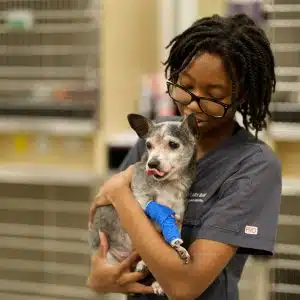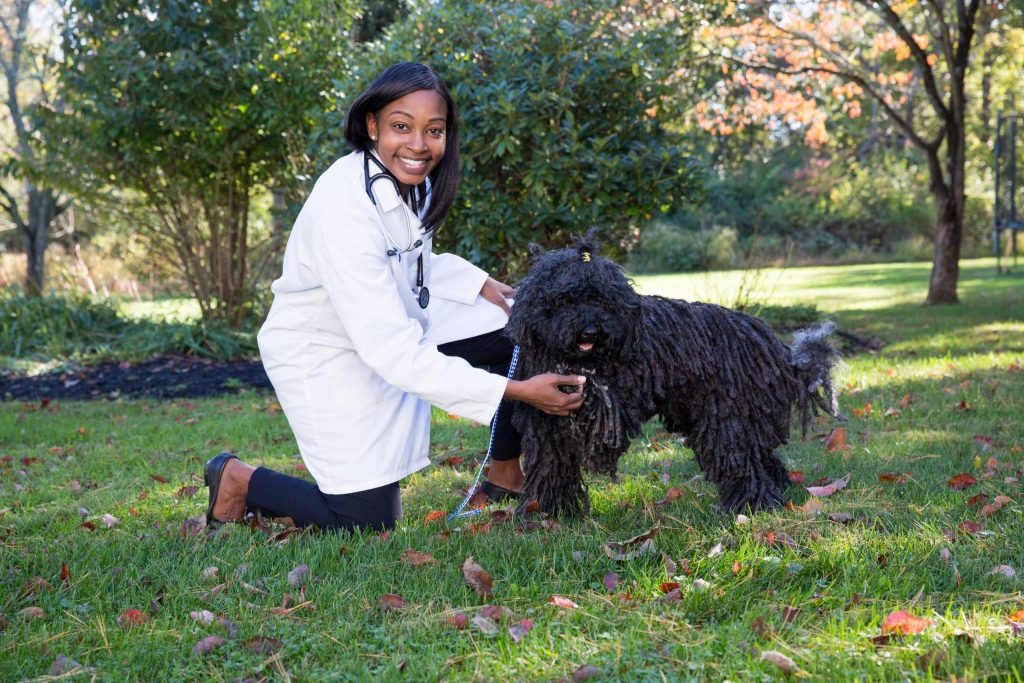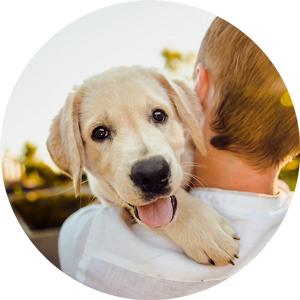How a Veterinary Oncologist Can Help Improve Your Pet's Lifestyle
Veterinary oncologists specialize in the diagnosis and treatment of cancer cells in pets, playing an important function in boosting their quality of life. They create personalized treatment plans that address the unique demands of each pet. With advanced diagnostics and targeted treatments, these specialists intend to manage signs and symptoms properly. Nevertheless, the journey does not finish there. Exploring the complete range of care options reveals even more about how these professionals can make a substantial distinction.

Understanding the Function of a Vet Oncologist

In enhancement to diagnosis, veterinary oncologists create comprehensive therapy methods customized to the needs of each family pet. These approaches may include radiation treatment, radiation therapy, and surgical treatments, focused on not only prolonging survival yet also improving the overall lifestyle. Additionally, they provide palliative care, concentrating on discomfort management and convenience for pets dealing with incurable diagnoses. By working together with pet owners, veterinary oncologists assure that pet dogs obtain one of the most effective and caring treatment possible during their cancer cells trip.
Customized Therapy Strategies for Your Pet
When an animal is identified with cancer cells, developing a tailored treatment plan becomes necessary for resolving their unique needs and circumstances. A veterinary oncologist thoroughly assesses the type of cancer, its stage, and the total wellness of the pet. This comprehensive evaluation enables the development of a personalized technique that might consist of a mix of radiation, radiation treatment, and surgery treatment.
The oncologist also considers the family pet owner's preferences and lifestyle, ensuring that the plan aligns with their objectives for their family pet's care. Pet Cancer Surgery. Therapy strategies are not static; they are consistently reviewed and adjusted based upon the pet dog's feedback and any arising requirements. By focusing on customized care, veterinary oncologists aim to boost the efficiency of treatments while maintaining the animal's quality of life. This customized approach promotes a much better understanding of the illness, encouraging pet owners to make informed decisions regarding their precious friends' health and wellness
Managing Symptoms and Side Impacts
Taking care of the signs and symptoms and negative effects of cancer treatment is an essential element of vet oncology. Vet oncologists make use of a variety of techniques to minimize pain and boost the total health of animals undergoing therapy. This may consist of using anti-nausea medicines to combat vomiting and loss of cravings, which are typical side results of chemotherapy. Discomfort management is likewise focused on, often entailing the prescription of analgesics tailored to the pet dog's particular demands.
In addition, oncologists might recommend nutritional changes, integrating top notch, quickly digestible foods to support dietary consumption. Checking blood job is crucial to find any type of adverse responses to therapy early, permitting timely interventions. Normal follow-ups make it possible for the veterinary team to assess the pet's feedback to treatment and make essential adjustments. Via these complete strategies, vet oncologists aim to improve the lifestyle for pets facing cancer therapy obstacles.
Palliative Treatment and Convenience Procedures
Palliative care plays an essential duty in boosting the high quality of life for pets detected with cancer, concentrating on comfort and emotional assistance instead of curative therapy. Vet oncologists prioritize discomfort management, assuring that animals experience marginal discomfort throughout their illness. This consists of the usage of analgesics, anti-nausea drugs, and other therapies customized to private demands.
In addition to medicinal interventions, ecological modifications can substantially enhance a pet's lifestyle. Creating a tranquility, comfy area with soft bed linens and easy accessibility to food and water can relieve tension. Nutritional assistance is likewise crucial; oncologists may suggest customized diets that satisfy the pet's requirements and choices.
Emotional assistance for both the pet and its owners is critical. Veterinary oncologists give assistance on dealing strategies, helping households browse the emotional obstacles that go along with a cancer cells diagnosis. Inevitably, palliative care aims to ensure that pet dogs obtain the self-respect and comfort they should have.
Teaming up With Your Regular Veterinarian
Collaboration with a regular veterinarian is crucial for optimizing the care of animals with cancer cells, as this partnership ensures a comprehensive method to therapy and top quality of life. The normal veterinarian usually has a thorough understanding of the pet's medical history, which is important when developing a therapy strategy. They can properly communicate with the veterinary oncologist, guaranteeing that all facets of the pet's health and wellness are thought about.
This cooperation enables worked with care, which may include routine exams, checking negative effects, and changing medicines as required. Normal veterinarians can also give psychological support to animal owners, aiding them browse the intricacies of cancer therapy - Veterinary Cancer Specialist. By functioning carefully with veterinary oncologists, they can help with a seamless change in between different sorts of care, guaranteeing that family pets obtain one of the most effective therapies while keeping their convenience and wellness throughout the process. With each other, they boost the overall quality of life for pets dealing with cancer cells
Frequently Asked Inquiries

What Kinds of Cancers Cells Do Veterinary Oncologists Generally Treat in Pets?
Veterinary oncologists usually treat numerous cancers in animals, consisting of lymphoma, pole cell growths, osteosarcoma, and soft tissue sarcomas. These specialists employ sophisticated diagnostic techniques and treatment options to deal with the certain requirements of each pet.
Exactly How Can I Prepare My Pet Dog for a Vet Oncology Visit?
Preparing a family pet for a veterinary oncology visit entails event clinical records, noting signs and symptoms, and preparing questions. Making certain the animal is comfortable and tranquil during travel can additionally significantly improve the total experience and examination performance.
Are There Any Type Of Different Therapies for Animals With Cancer cells?
Alternative therapies for family pets with cancer usually include acupuncture, natural medication, and dietary support. These approaches might complement conventional treatments, possibly boosting total health and providing helpful treatment throughout the pet dog's cancer cells journey.
Exactly how Commonly Should My Pet Dog See the Vet Oncologist?
The regularity of visits to a veterinary oncologist usually depends upon the family pet's details condition and therapy strategy. Routine analyses might be advised every few weeks or months to monitor development and adjust treatments accordingly.
What Costs Are Associated With Veterinary Oncology Services?
Costs linked with veterinary oncology solutions can differ extensively, consisting of initial assessments, diagnostic tests, therapy strategies, and recurring treatment. Pet Cancer Surgery. Pet owners need to plan for possible expenditures that mirror the intricacy and duration of the treatment needed
Veterinary oncologists specialize in the medical diagnosis and treatment of cancer in pets, playing an essential role in boosting their high quality of life. Numerous pet proprietors might not be acquainted with the details of vet oncology, recognizing the function of a vet oncologist is necessary for handling cancer in pets. The oncologist additionally thinks about the animal owner's choices and lifestyle, ensuring that the strategy lines up with their goals for their pet dog's treatment. By concentrating on individualized treatment, vet oncologists aim to enhance the performance of treatments while maintaining the animal's top quality of life. By functioning very closely with veterinary oncologists, they can assist in Board Certified Veterinary Oncologist a smooth change in between different types of treatment, making sure that pets obtain the most reliable treatments while keeping their comfort and well-being throughout the procedure.